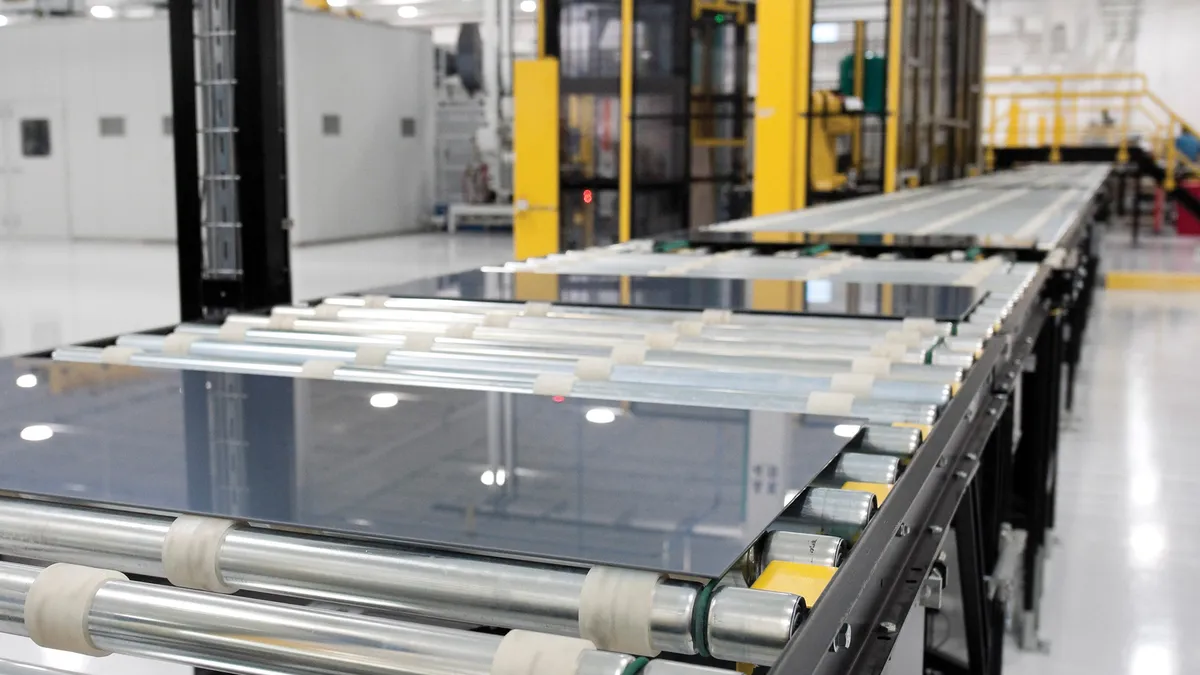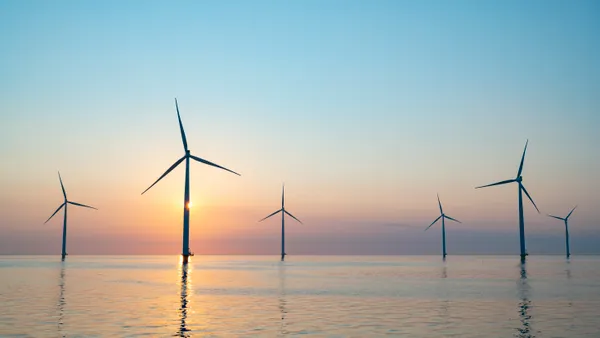Dive Brief:
- President Donald Trump met with China's President Xi Jinping in Argentina on Saturday, according to a White House statement, and agreed to work on negotiating a trade agreement between the nations in the next 90 days, delaying the escalation of U.S. tariffs on Chinese goods, such as solar inverters, which were scheduled for January.
- Trade experts on a panel at the Solar Energy Industries Association (SEIA) Policy Summit on Wednesday viewed the 90-day delay on tariff escalation favorably, saying that the negotiation period may be too brief. Putting off the tariff increase "actually helps" companies making new manufacturing investments "in the short term," SEIA's vice president of market strategy, John Smirnow, told Utility Dive.
- Tariffs under Section 301 of the Trade Act were slated to increase from 10% to 25% on Jan. 1, affecting cheap solar panel raw materials imported from China as part of more than $250 billion of goods targeted for higher tariffs.
Dive Insight:
Stocks rallied on Monday, in the wake of the trade negotiation announcement following the Group of 20 (G-20) meeting, but sank once more on Tuesday, following a series of tweets from Trump threatening to add additional tariffs.
The White House has not revealed a lot of details about the negotiations, which will be led by U.S. trade representative Robert Lighthizer, who recently brokered the new North American trade deal.
"What I see is a very top-level agreement between two principals that still very much needs to be ironed out," Jennifer McCadney, trade attorney and government relations specialist for Kelley Drye & Warren, said on the SEIA panel.
"The charge that Ambassador Lighthizer has is to secure some commitments from China that will address structural issues in our economy," which have popped up since China seceded from the World Trade Organization, McCadney added.
"Congress will not want something that doesn't have some enforcement in it," Susan Esserman, partner at Steptoe & Johnson and a former trade negotiator and ambassador during the Clinton administration, said at the SEIA panel.
The solar industry was already impacted by high tariffs, as a Section 201 provision in January added a 30% tariff on solar cells, which is set to decrease to 25% in 2019, according to SEIA. The latest round of Section 301 tariff escalations is expected to be most impactful on new manufacturers in the U.S., Smirnow said.
"In some ways, the solar industry is the poster child for the U.S.-China trade tensions," he said.
Smirnow pointed to the China-based manufacturer JinkoSolar Holdings, which announced plans this year to open its first U.S. factory in Florida and is expected to create more than 200 direct jobs in the state.
"You know, their supply chain ... all of the raw material going into those products are largely coming out of China, so having a tariff on their raw material imports undercuts their U.S. investment," Smirnow told Utility Dive.
The advancement of solar panel manufacturing has also been a point of concern regarding job creation, as Bloomberg reported the increasing automation inside factories might not yield a significant boost to employment opportunities.
Some experts anticipate the truce to be extended beyond the 90 days.
"I think the G-20 agreement is probably the best outcome we could have hoped for under the circumstances: a temporary ceasefire with a time-frame to begin negotiations," Esserman said.
"This truce, at least from the U.S. administration's perspective going in, I think was preplanned, and so I think there is not necessarily an expectation in the administration that it is going to happen in 90 days," Amy Hariani, vice president of the U.S.- India Business Council at the Chamber of Commerce, said on the SEIA panel.
The trade war truce could temporarily calm the market, "but we are still mission-critical focused on our goal. which is to get some major reforms," she said. However, Trump's series of tweets two days following his working dinner with Xi already undid some of the short-term good of the truce.
....I am a Tariff Man. When people or countries come in to raid the great wealth of our Nation, I want them to pay for the privilege of doing so. It will always be the best way to max out our economic power. We are right now taking in $billions in Tariffs. MAKE AMERICA RICH AGAIN
— Donald J. Trump (@realDonaldTrump) December 4, 2018
"It seems that the president's tweets as of yesterday injected even more uncertainty, with his 'tariff man' comment, not really providing more clarity or certainty as to the exact parameters of the deal," McCadney said.
The White House did not respond to a request for comment regarding the impact of the tweets.














